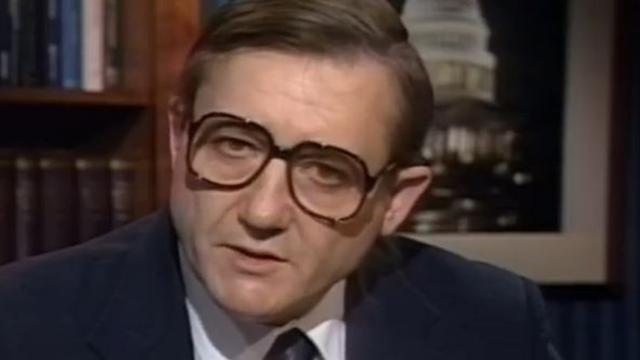After the crime, media took at face value the statements of anti-Unification-Church lawyers. Nobody cared to investigate them and their past.
by Massimo Introvigne
Article 2 of 7. Read article 1.


All of a sudden, even non-Japanese media after the assassination of Shinzo Abe became familiar with a group called National Network of Lawyers Against Spiritual Sales. The network, now including some 300 lawyers, was established in Japan in 1987 to combat the Unification Church, although it occasionally targeted other religious movements as well.
Abe’s assassin claimed he killed the former Prime Minister because he had attended via video an event, and sent a message to another, of a group connected with the Unification Church/Family Federation, which the killer accused of having ruined her mother, who had made heavy donations to it. In fact, the mother went bankrupt in 2002, and the assassin killed Abe twenty years later. To avoid the possible criticism that the campaigns of the hostile lawyers had excited the feeble mind of the killer, the Network decided to strike preemptively. It held press conferences blaming the Unification Church for what happened, turning the perpetrator into the victim and vice versa.


Most international media bought the version of the Network, without investigating who exactly these lawyers are. They also ignored a precedent that once caught the international attention of human rights activists and even of the U.S. Department of State, which mentioned it in its yearly reports on religious liberty. From 1966 to 2015, some 4,300 adult members of the Unification Church were kidnapped at the instigation of their parents, locked in apartments, and submitted to “deprogramming,” a practice invented in the United States but declared illegal by courts of law there.
Members of religions their parents did not approve of were kidnapped, privately detained, and submitted to heavy physical and psychological pressures until they accepted to abandon their faith. Deprogramming had been forbidden in most democratic countries of the world, and only survived in Japan and South Korea.
Deprogramming in Japan also targeted the Jehovah’s Witnesses and other minority religions, and was particularly rough. A female member of the Unification Church accused a deprogrammer of having raped her for several months while he was trying to “deconvert” her (although she later became scared and withdrew the accusation). Having learned of the rape, years later her father committed suicide out of his shame for having hired the deprogrammer.


Unification Church member Toru Goto was confined in apartments for more than twelve years in the unsuccessful attempt to deprogram him. It was his case that led the Supreme Court in 2015 to declare the deprogramming illegal and grant significant damages to Goto (two Unification Church believers had won cases before him, but had received only small awards of damages). After this decision, the practice ceased, although in 2021 there was a new case, when parents detained a Unification Church member in their home rather than in an apartment, then claimed it was just a family affair.
The most visible lawyers of the Network, Hiroshi Yamaguchi (who represented Goto’s main tormenter, Takashi Miyamura), Hiroshi Watanabe, and Masaki Kito, were involved in defending those accused of having acted as deprogrammers. Some attorneys in the Network relied on deprogrammers who sent to them their deprogrammed victims. They were then persuaded to sue the Unification Church, generating significant revenues for the lawyers.


Not all the Network’s lawyers supported the kidnappings. To his credit one of them, Yoshiro Ito, suggested in 1996 that the Network should cease its cooperation with Miyamura. As late as the 2021 case, however, a Network’s lawyer, Yasuo Kawai, assisted the parents who tried to revive the illegal practice of deprogramming.
In the case of Yamaguchi, his enmity towards the Unification Church pre-dates the foundation of the Network. In 1979, Soviet KGB agent and top spy in Japan Stanislav Levchenko defected to the U.S. He testified that prominent Japanese politicians, mostly connected with the Socialist Party of Japan (SPJ), were paid Soviet agents.
Although Levchenko’s revelations were later confirmed by documents discovered in Russian archives after the fall of the Soviet Union, in 1983 the SPJ answered by denouncing a conspiracy organized by the CIA through the International Federation for Victory Over Communism (IFVOC), an organization connected with the Unification Church. IFVOC sued the SPJ. Yamaguchi represented the SPJ but lost the case, which was later settled with the SPJ paying two million yen to IFVOC as a settlement fee.


For some lawyers in the network, including the most prominent ones, the campaigns against the Unification Church were tools to protect deprogramming and the subsequent lawsuits by deprogrammed ex-members against the Church, both lucrative businesses. A not less lucrative venture is suing the Unification Church on behalf of donors persuaded by the lawyers that they can recover their donations. The Network’s lawyers are keen to offer figures about these donations, but how much money they made as attorneys out of these cases is not disclosed.
They are also not above resorting to questionable tactics. In a case the Unification Church won against an ex-member at the Tokyo District Court on March 1, 2021, the judge found out that the plaintiff had altered and backdated a personal notebook to fabricate evidence against the Unification Church.


No, the lawyers of the National Network of Lawyers Against Spiritual Sales are not knights in shining armors slaying the dragons of “cults,” as their own propaganda claims, too easily accepted by Japanese and international media. Although there are different positions among them on the issue of deprogramming, some prominent Network members defended violent kidnappers—and even Soviet spies—, submitted false documents fabricated by their clients to the judges, and spread against the Unification Church slanderous information they knew was not true.









